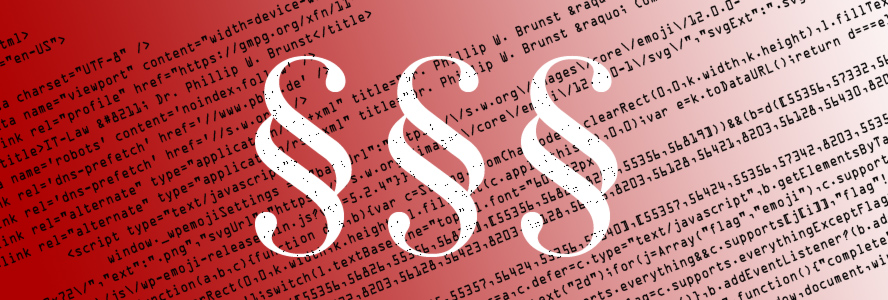
Information law – often named “computer law”, “multimedia law”, “Internet law” or “IT-Law” – deals with the reactions of jurisprudence on the developments of modern information technology. This concerns, for example, the introduction of electronic signatures in law, the establishment of digital access to governmental information or the development of a system to deal with crimes in the digital arena. Information law is therefore a true cross-sectional matter that combines areas of civial law, public law, and criminal law.

Transnational cybercrime leads to new challenges
In the area of criminal law Dr. Brunst conducts research especially on the phenomea of transnational cybercrime and the national as well as international means to fight them. In several publications he focuses on the legal answers to these challenges. He explored the international difficulties mainly in the areas of the terrorist use of the Internet and cyberterrorism.
The legal thesis “anonymity on the Internet” deals with the interdependencies of law and technology and the close relation between questions of criminal law and data protection law. The book concerns the relationship between anonymity on the Internet and chances for an effective prosecution of Internet-related crime.
